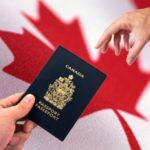In today’s globalized world, millions of individuals aspire to move abroad for better career opportunities, a higher quality of life, and long-term stability.
For many, securing Permanent Residency (PR) is the ultimate goal. However, obtaining a PR visa isn’t simply about submitting a form — it often involves a points-based immigration system, used by countries like Australia, Canada, New Zealand, and others to assess and select skilled migrants.
If you’re wondering how the points system works for a Permanent Residency Visa, this detailed guide will break down the concept, explain how points are calculated, and offer actionable tips to improve your chances of success.
What Is a Points-Based Immigration System?
The points-based system is a structured method used by immigration authorities to assess and rank candidates applying for PR based on specific criteria. Each factor is assigned a set number of points, and applicants must meet or exceed a minimum threshold to be eligible for invitation or selection.
This system is designed to prioritize skilled individuals who are most likely to succeed in the host country’s job market and adapt to its society.
Key Countries Using Points-Based PR Systems
- Australia – General Skilled Migration (GSM) Program
- Canada – Express Entry System
- New Zealand – Skilled Migrant Category
- United Kingdom – Points-based system for work and residency (with specific visa pathways)
Let’s explore the general structure and key components of these systems, with Australia and Canada as our main focus examples.
Main Factors That Determine Points
- Age
Younger applicants tend to receive higher points since they are assumed to have a longer working life ahead of them.
- Australia: Up to 30 points (for age 25–32)
- Canada: Up to 12 points (under the Comprehensive Ranking System)
- Education Qualifications
Higher academic achievements translate to more points.
- Bachelor’s, Master’s, and PhDs are generally favored.
- Points may increase if the education is obtained within the country you’re applying to.
- Work Experience
Skilled work experience in a relevant field significantly boosts your score.
- More years = more points
- Bonus points may apply for local work experience in the destination country.
- Language Proficiency
High proficiency in English (and French for Canada) is essential.
- IELTS, TOEFL, or PTE test results are used to assess this skill.
- Canada uses CLB scores, while Australia assigns points for band scores.
- Job Offer or Nomination
- A job offer from an employer or nomination from a provincial/state government can dramatically increase your points.
- For example, Canada’s Provincial Nominee Program (PNP) gives a 600-point bonus.
- Adaptability or Partner Skills
- Having a spouse or partner with qualifying skills or language proficiency can add to your total.
- Previous study, work, or family connections in the country also contribute points.
🇦🇺 Example: Australia’s PR Points Test (General Skilled Migration)
To apply for visas like Subclass 189 (Independent Skilled) or Subclass 190 (State Nominated), you need at least 65 points to lodge an Expression of Interest (EOI). Here’s a breakdown:
| Factor | Maximum Points |
| Age | 30 |
| English Language | 20 |
| Skilled Work Experience | 20 |
| Education Qualification | 20 |
| Australian Study Requirement | 5 |
| State Nomination (Subclass 190) | 5 |
| Partner Skills | 10 |
| Professional Year in Australia | 5 |
Applicants submit an EOI via SkillSelect, and those with the highest scores are invited to apply.
🇨🇦 Example: Canada’s Express Entry CRS System
Canada’s Express Entry evaluates profiles based on a Comprehensive Ranking System (CRS) out of 1,200 points:
| CRS Category | Max Points (Single) |
| Core Human Capital | 500 |
| Spouse/Common-Law Partner | 40 |
| Skill Transferability | 100 |
| Additional Factors (PNP, Job Offer, etc.) | 600 |
Draws are held every few weeks, and the cutoff score varies. If your score is higher than the cutoff, you’ll receive an Invitation to Apply (ITA).
How to Improve Your Points Score?
If your score is below the minimum required, don’t worry—there are multiple ways to boost your points:
Retake the English Test
Even a small increase in your band score can add up to 20 extra points.
Gain More Work Experience
Accumulate experience in a skilled occupation relevant to your nominated field.
Pursue Further Education
Consider a diploma, bachelor’s, or master’s degree that aligns with in-demand occupations.
Apply for State Nomination or PNP
These programs offer bonus points and may have lower thresholds for selection.
Check Now! Calculate Your Canadian Federal Skilled Worker Points
Get Your Partner Assessed
If your partner meets the skill and language requirements, you can gain additional points.
Step-by-Step Overview of the Points-Based PR Application Process
- Check Eligibility Criteria
Confirm if you qualify for the skilled stream and meet the minimum points threshold. - Take Language Tests
Book and complete a language proficiency exam like IELTS or PTE. - Skill Assessment
Apply for a skills assessment through a designated authority (e.g., ACS, Engineers Australia for Australia). - Calculate Your Points
Use official calculators to estimate your score and eligibility. - Submit Expression of Interest (EOI)
Register your profile through the country’s portal (e.g., SkillSelect or Express Entry). - Wait for Invitation
If your score is high enough, you’ll receive an ITA or nomination. - Apply for PR Visa
Submit a complete application, including documents and fees. - Medical & Police Checks
Complete background checks and health examinations. - Wait for Decision
PR processing times vary (typically 6–12 months).
Final Thoughts: Plan Strategically, Apply Confidently
The points system for permanent residency is both transparent and competitive. It rewards applicants who are skilled, adaptable, and ready to integrate into the host country. While the process may seem overwhelming at first, proper planning, professional guidance, and strategic improvements to your profile can significantly enhance your chances of success.
If you’re uncertain about your current score or eligibility, consider consulting a registered immigration consultant to evaluate your options, improve your credentials, and support your journey to a new life abroad.
Ready to Take the First Step Toward Your Dream Country?
Understanding how the points system works is your key to unlocking a future filled with opportunity, growth, and stability. Start preparing today, and your permanent residency could be closer than you think!






